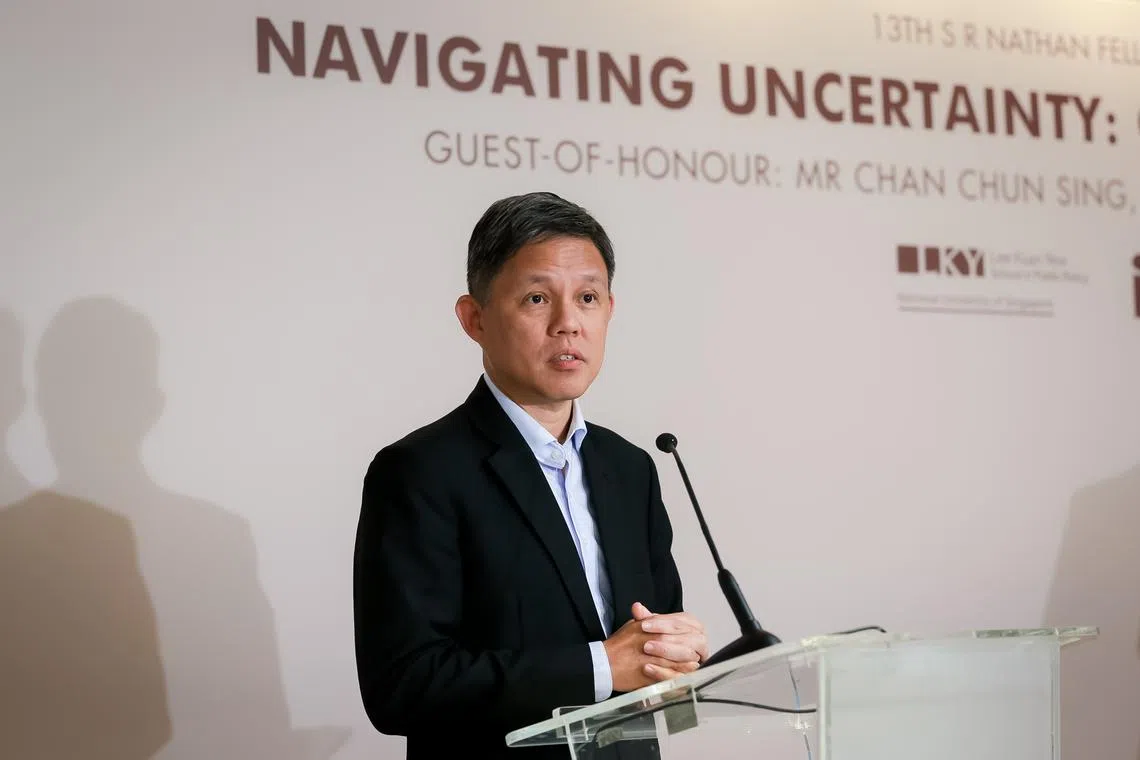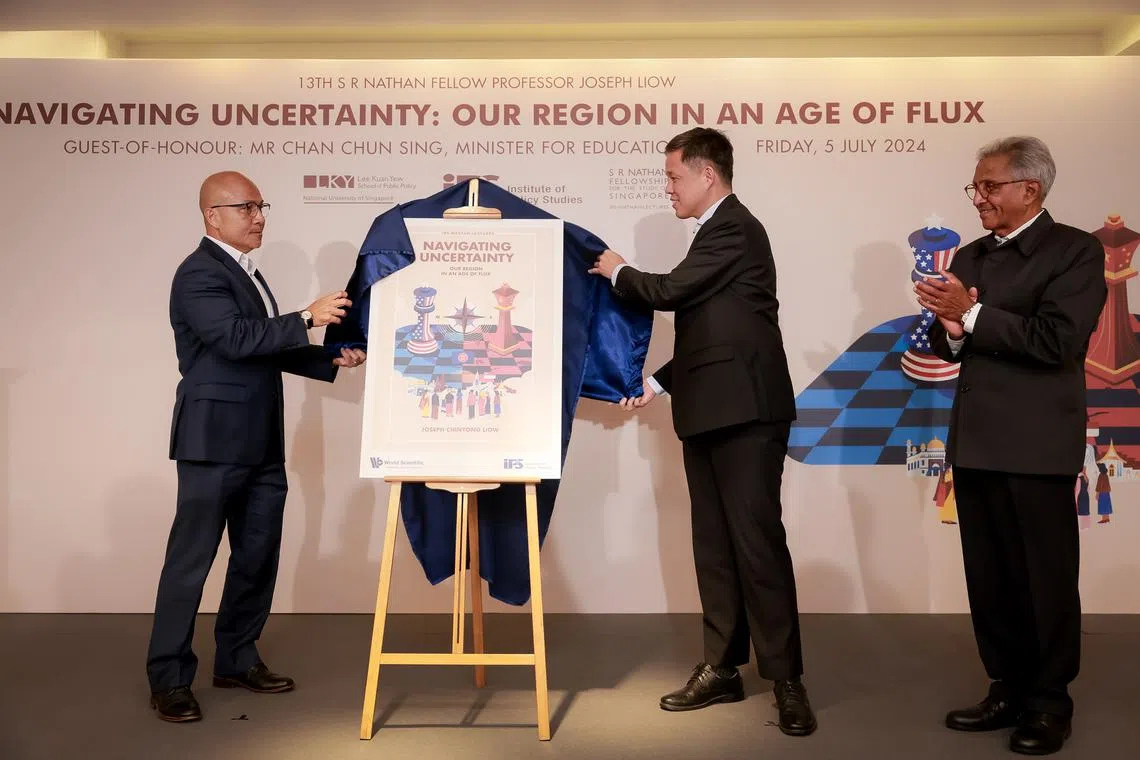Leaders must be honest with the people about challenges, seek sustainable solutions: Chan Chun Sing
Sign up now: Get ST's newsletters delivered to your inbox

Education Minister Chan Chun Sing said Singapore must continue working with like-minded countries and companies to shape the future.
ST PHOTO: GAVIN FOO
SINGAPORE – In an age of uncertainty, leaders must be honest with their people about challenges, rather than externalise problems, seek easy solutions or reduce complex global issues to binary labels, said Education Minister Chan Chun Sing.
Speaking at the launch of a new book by international affairs scholar Joseph Liow, Mr Chan said leadership is paramount in a world where there are conflicts around the world, protectionism is rising, and politics is becoming more polarised.
To navigate this era, Singapore needs leaders who are courageous in communicating the truth, make tough decisions and work towards sustainable solutions, he told an audience of close to 100 people at the event at the Lee Kuan Yew School of Public Policy on July 5.
For instance, protectionism may appear to be a quick fix for fierce global competition, but this will not enhance global efficiency nor will it improve Singaporeans’ lives in the long run, he said. Trading with others means adjusting industries and jobs, and key for Singapore is helping its people manage these changes, said Mr Chan.
The way to deal with rapid changes in technology is to invest in education and training so that people can reskill to seize new opportunities, while policies to provide equitable access to opportunities can mitigate the unequal distribution of economic growth, he added.
“These tasks demand leadership with honesty, gumption and vision,” he said.
Choosing sides in a polarised world is unconstructive, Mr Chan added.
While it takes much more effort to bridge differences and find new ways to cooperate, that is the only way forward that fosters peace and stability, he stressed.
Singaporeans can do so by deepening their understanding of the global forces at play, and how they impact partner countries’ motivations and actions in order to find space for feasible collaboration, he said.
He noted that Professor Liow’s new book – Navigating Uncertainty: Our Region In An Age Of Flux – makes this point, reframing the question from who Singapore chooses to partner, to how to make others choose Singapore.
He urged people to avoid “the laziness of mind” that reduces complex global issues to simplistic binaries, such as good versus evil, or democratic versus authoritarian. “These labels hinder our ability to find common ground.”
He also stressed that historical interpretations of contemporary actions can illuminate, but may also end up confining countries’ choices.
“We are all familiar with the saying, ‘Those who do not read history are bound to repeat it’. Yet, at the same time, I must say those who are captured by history are also equally bound to repeat it – if we use old concepts, then we become prisoners of those ideas,” he said.

(From left) International affairs scholar Joseph Liow, Education Minister Chan Chun Sing and IPS director Janadas Devan unveiling the book Navigating Uncertainty: Our Region In An Age Of Flux by Prof Liow.
ST PHOTO: GAVIN FOO
Mr Chan said on its part, Singapore must continue working with like-minded countries and companies to shape the future.
“The US and China may be the two biggest powers in the world, but... the rest of us – the remaining two-thirds (by global GDP) – have both agency and responsibility to act,” he said. “The greater the challenges, the greater the need to keep exploring solutions with both friends and foes.”
The new book collects three lectures by Prof Liow, who is Tan Kah Kee chair in comparative and international politics at Nanyang Technological University.
The lectures cover the US-China rivalry, South-east Asia’s role in a shifting global order, and identity politics in the region, and were delivered in 2023, when he was the Institute of Policy Studies’ 13th S R Nathan Fellow for the Study of Singapore.


